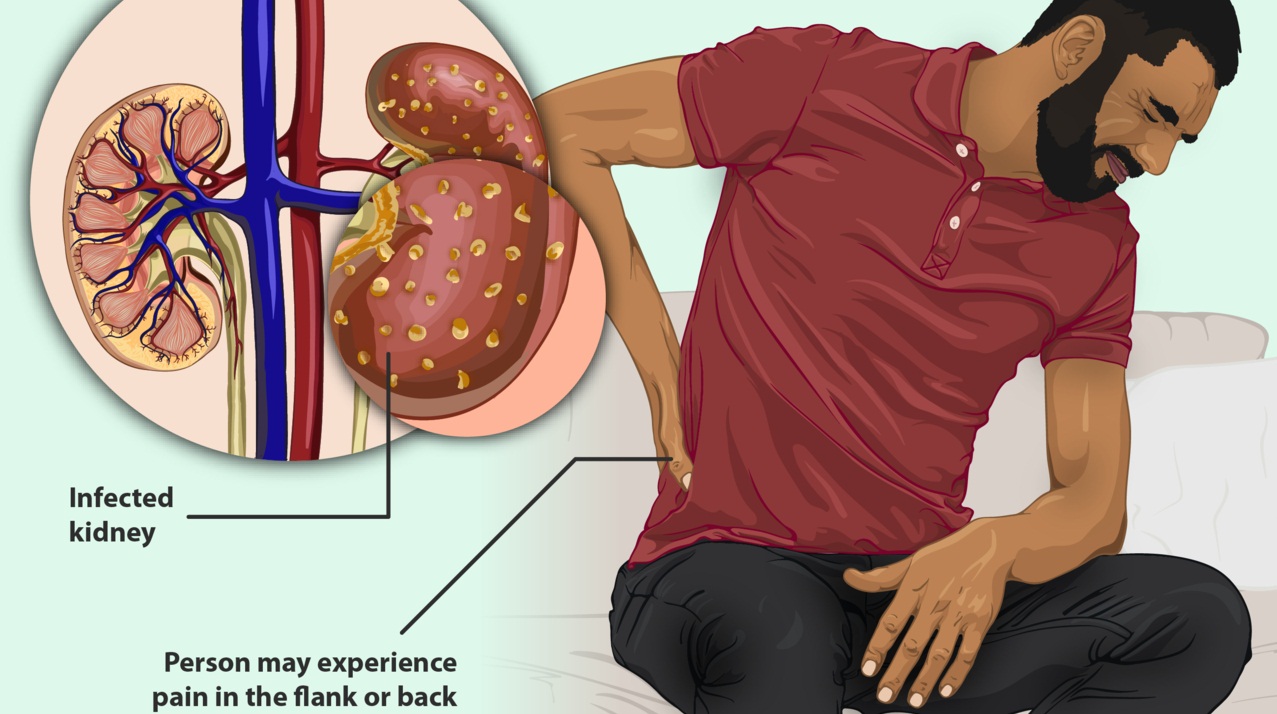The kidneys are key organs that filter the blood and eliminate waste products, while keeping essential minerals and substances to distribute to the rest of the body. All the waste from the blood leaves the body via urine. Both kidneys or one kidney (which is the more common case) may get infected with a variety of harmful bacteria, causing pyelonephritis — the medical name for a bacterial kidney infection). Very often, E. coli is responsible.

- One is acute pyelonephritis clinically identified by flank pain and fever and generally perceived as being a kidney infection.
- The second is cystitis, characterized by dysuria and increased frequency and urgency of urination, which is generally perceived to be a bladder infection and accounts for 95% of all visits to physicians for UTIs.
Escherichia Coli and Kidney Infection
The common harmful bacteria Escherichia coli (E.coli) are very frequently found to be the cause of pyelonephritis. These bacteria live in the bowels of healthy people, and through the urethra (the tube that connects the bladder to the outside of the body) they could travel into the bladder and the ureters (which connect the bladder to the kidneys), causing infections of the lower urinary tract (UTIs, or urinary tract infections), such as cystitis or kidney infections.
Women are more vulnerable to developing a UTI, because of their anatomy which makes the urethra nearer to the anus and also shorter than in men.
Kidney infections may develop in patients without a prior bladder problem, especially due to the blockage of the kidneys and conditions such as enlarged prostate or kidney stones. Additionally, the infection may also come to your kidneys from some other part of the body.
Possible Symptoms and Complications of a Kidney Infection
A kidney infection can be acute or chronic, depending on the duration of the problem. An acute kidney infection is commonly seen to develop in just a few hours or maximally 24 hours. Patients usually have very high body temperature (a fever of more than 38°C), experience some shivering, feel sick, vomit and suffer from pain in the lower back. Some people suffering from pyelonephritis may also experience different problems with urination: stinging, burning and the urge to urinate frequently and urgently. There might also be some blood in the urine or a change of color and smell (cloudy, colored, smelly urine).
Pregnant women, diabetes patients and elderly people, as well as people with a weakened immune system, urinary catheter or persistent kidney infection are considered to be high risk groups for the development of complications after kidney infections caused by E.coli. These patients may suffer from swelling of the kidneys, kidney abscesses or even sepsis (blood poisoning, when bacteria enter the blood flow).
What to Do if You Think You Have a Kidney Infection?
It is extremely important to seek medical attention as soon as possible when you know — or strongly suspect — that you have a kidney infection. Not only are the symptoms unlikely to get better on their own, they could very easily become much worse. To treat a serious bacterial infection, which a kidney infection definitely is, you absolutely require antibiotic treatment. Only a doctor can prescribe that.
Alongside obligatory antibiotics, do everything you can to prevent dehydration. This is even more important for pregnant women and elderly patients. Fever, discomfort and pain may be resolved using some OTC (over the counter) pain killer drugs, such as Aspirin, paracetamol or ibuprofen. In most cases people feel better after day or two, after starting antibiotics. However, it is crucial to complete your entire course as your doctor has prescribed it.

















Your thoughts on this
Loading...